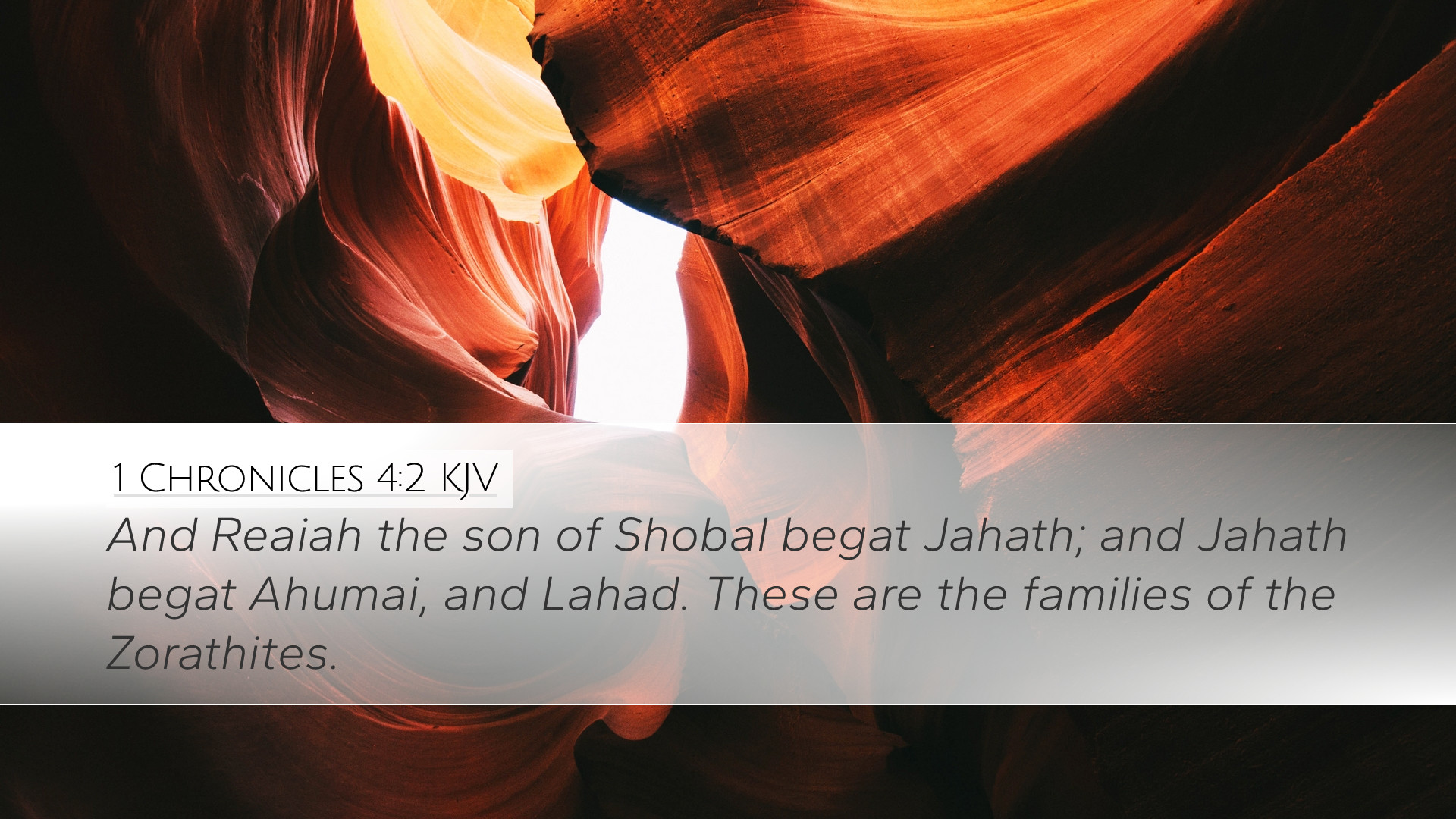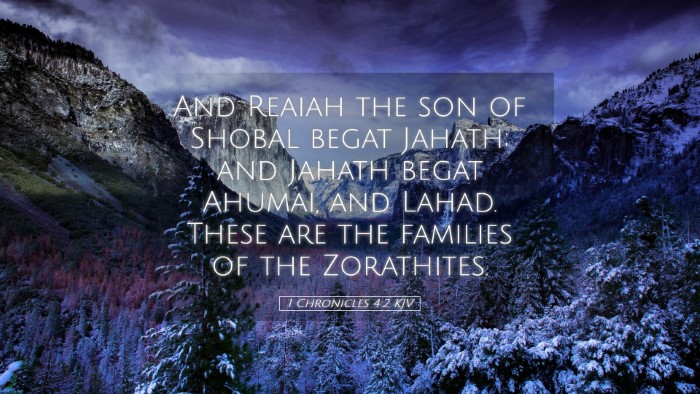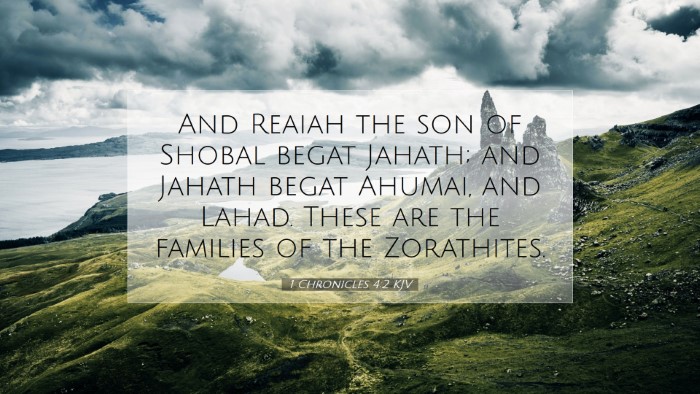Commentary on 1 Chronicles 4:2
Bible Verse: "And Reaiah, the son of Shobal, begot Jahath; and Jahath begot Ahumai and Lahad. These are the families of the Zorathites."
Introduction
This verse, part of the genealogical records found in 1 Chronicles, highlights the lineage of the tribe of Judah. Such passages can often seem dry or uninteresting, yet they carry profound theological significance. The genealogies serve not just as historical records, but also as connections to the promises God made to His people. In studying this text, we glean insights into the importance of family heritage and God's faithfulness through generations.
Significance of Genealogies
In biblical literature, genealogies fulfill several important functions:
- Historical Record: They document the lineage of Israel, emphasizing the fulfillment of God's promises.
- Theological Implications: They reveal the providential hand of God in maintaining a holy line, leading to the coming of the Messiah.
- Identity and Community: They provide a sense of belonging and identity to the Israelite people, reminding them of their shared heritage.
Insights from Matthew Henry
Matthew Henry emphasizes the significance of the individuals mentioned in this verse. He notes that Reaiah, being a descendant of Shobal, shows the importance of recognizing where one comes from. The emphasis on familial ties reflects God's design for the community of faith, where each individual plays a role in the collective history of God's people.
Henry explains that genealogies are not merely lists of names; within them lie the narratives of faithfulness and providence. The mention of Jahath and his descendants serves to remind the reader of the ongoing legacy that each generation carries. The Zorathites are presented not just as names, but as part of the evolving story of God's redemptive plan.
Insights from Albert Barnes
Albert Barnes adds depth by examining the cultural context of genealogies. He points out that in ancient Israel, lineage was crucial for inheritance rights and tribal affiliation. The reference to the Zorathites indicates a specific family group within Judah, underscoring nonindividualistic aspects of biblical life. Each person’s identity was intricately tied to their family and tribe.
Barnes also highlights the theological significance of this genealogical record against the backdrop of God's covenant with Abraham, Isaac, and Jacob. The continuity of the line, through Reaiah to Jahath and Onan, illustrates God's faithfulness in preserving His covenant people. The names mentioned are reminders of the lineage that ultimately leads to Christ, affirming the belief that God meticulously oversees history.
Insights from Adam Clarke
Adam Clarke discusses the meaning behind the names mentioned in this verse. He draws parallels between the significance of names in Scripture and the attributes they often convey. For instance, Reaiah means "Jehovah has seen," suggesting God's active presence and oversight in the lives of His people. This encouraging notion is pivotal in understanding God’s continued guidance through families.
Clarke also emphasizes the importance of the Zorathites within the broader context of worship in Jerusalem. As descendants of Judah, they would have played a significant role in the Levitical system of priesthood and worship, highlighting how every family has the potential to contribute to the community of faith. The mention of these names serves to reflect God’s ongoing plan for His people, linking them to holy service.
Theological Reflection
This verse offers both historical insights and deep theological reflections. It challenges the reader to consider the nature of their own heritage and how it shapes their walk with God. Each name within the genealogy represents a life lived in relationship with God, reminding scholars, pastors, and students of the value of faithful living across generations.
Genealogies like this one serve as a testament to God's faithfulness. They illustrate that history is not just a series of events but a narrative authored by God, where each individual's life contributes to His sovereign purpose. For theologians, this underscores the importance of studying not just the well-known stories of Scripture but also the seemingly trivial details that reveal God's character and plan.
Conclusion
In conclusion, 1 Chronicles 4:2 serves as more than a mere list of names; it invites readers to delve into the rich tapestry of God's faithfulness throughout history. By examining insights from Matthew Henry, Albert Barnes, and Adam Clarke, we find that this genealogy provides profound lessons on the significance of familial ties, the continuity of faith, and the beauty of God's providential care.
As we reflect on this verse, may it encourage us to appreciate our own spiritual heritage and recognize our place in the ongoing story of God’s redemptive work within the church and the world.


